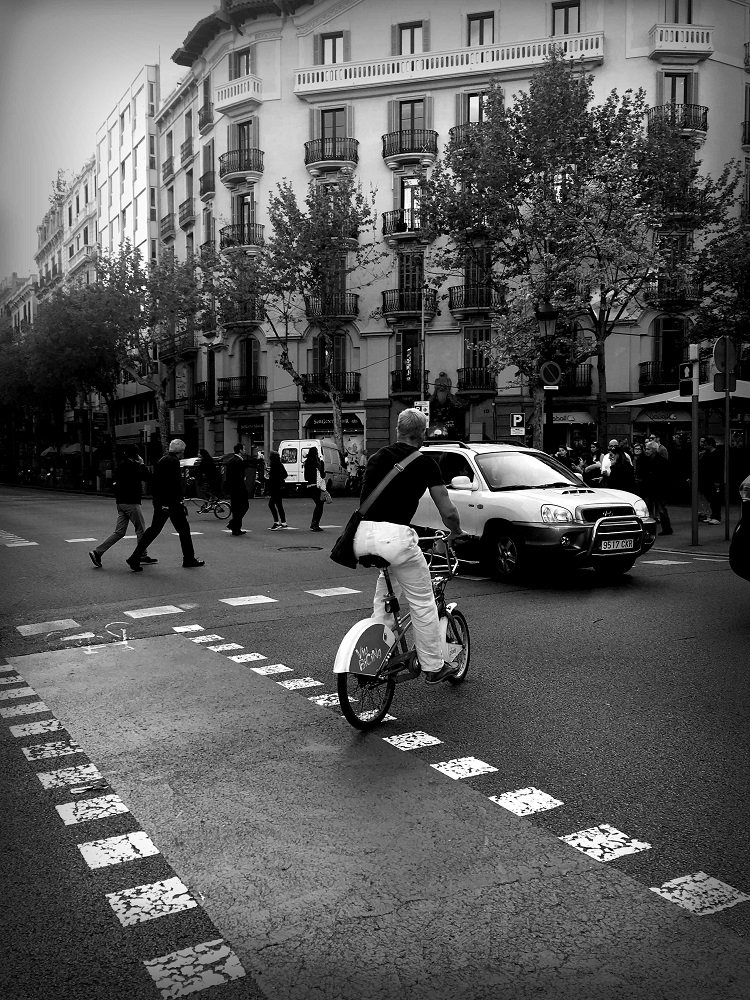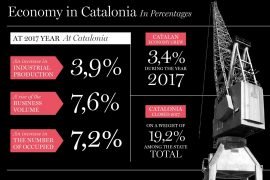[dropcap letter=”A”]
nyone who has set foot in a Chinese city in the last few years will have seen that the streets are full of new bicycles in all sorts of colours. They belong to bike-sharing companies like Mobike or Ofo, which have already discharged their bikes in Europe (Berlin, Florence, Madrid), and in Barcelona we find ourselves looking at them as if they were the eleventh plague of Egypt.
This new generation of bike sharing takes the local Bicing model one step beyond: you no longer have to leave the bicycles at the stations because they can park anywhere. To use them, the user registers with the mobile, unlocks the bike with an application and pays a bit (from a few cents upward) for every half hour of pedalling. And when you reach yur destination, you park right there and the bike is then available for the next user.
Here, we put our hands to our heads before these shared transport models—whether bikes, cars or electric skateboards—because we consider that these companies are taking up public space with private vehicles and that can’t be. The argument is stunning, to say the least: don’t we allow thousands of private motorcycles to park in public spaces? (in 2015 we had 273.718, many of them parked on the pavement). Aren’t the streets full of private cars occupying thousands of public parking spaces?

According to municipal statistics, Barcelona has 5,500 cars per km2, while cities like Amsterdam or Berlin do not exceed 1,300. This absurdity makes us the fifth most polluted city in Europe, we have twice as much pollution as other European cities and this causes 3,400 premature deaths per year. And much of this pollution is caused by motorcycles, as Lluís Brau explained in an article (in Spanish) that caused quite a commotion last year.
Given how easy it is to use these new bike-sharing systems (you would find the bike parked in front of your house, and you could leave it at the door at work, alongside the thousands of motorcycles there are now), we can take for granted that many Barcelonians would set themselves pedalling, with the immediate decrease in the levels of pollution that this would mean. There would be more bicycles around, which would be sorted with more bike lanes. In addition, it is estimated that shared bicycles are used 10 to 15 times a day, so that only one bicycle would serve many more people than any car, motorbike or private bike, which also occupy space and only make an average 3 trips per day. Experts call for “spatial justice” to refer to this current abuse: cars occupy 60% of public space today, and are only used in 20% of trips.
There are many ways to transform Barcelona into the Amsterdam of southern Europe, and not all of them mean bikes out of control. I am the first person who, when I hear about the sharing economy, I immediately reach for my wallet, but sharing means of transport is more effective than each of us having our own. This is like drills: must each house have one, if we use it once a year? Couldn’t we share them?
To start with, the Council could establish strict rules of entry for these companies. That a percentage of the revenues should be for the city, in the form of a fee for bike lane maintenance for example. You could also clearly set the bounds for where you could park. And if we do not want them on the pavements, perhaps one out of every ten car parking spaces mi9ght be allocated to the bicyles, considering that there could be 10 bikes in the space taken up by one car.






















